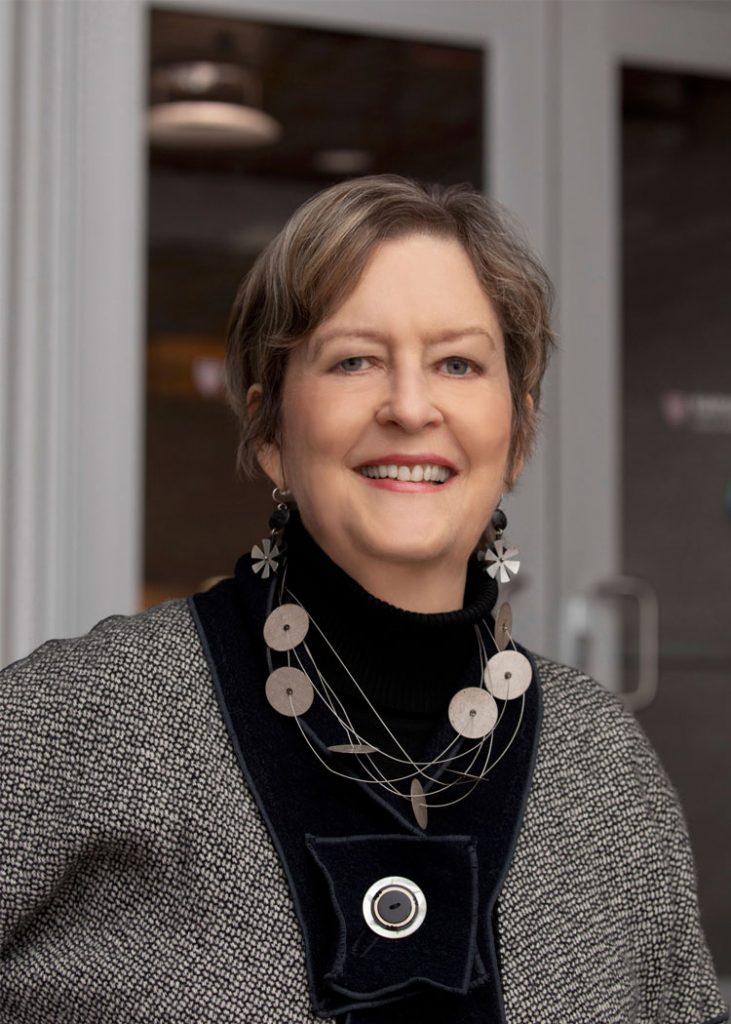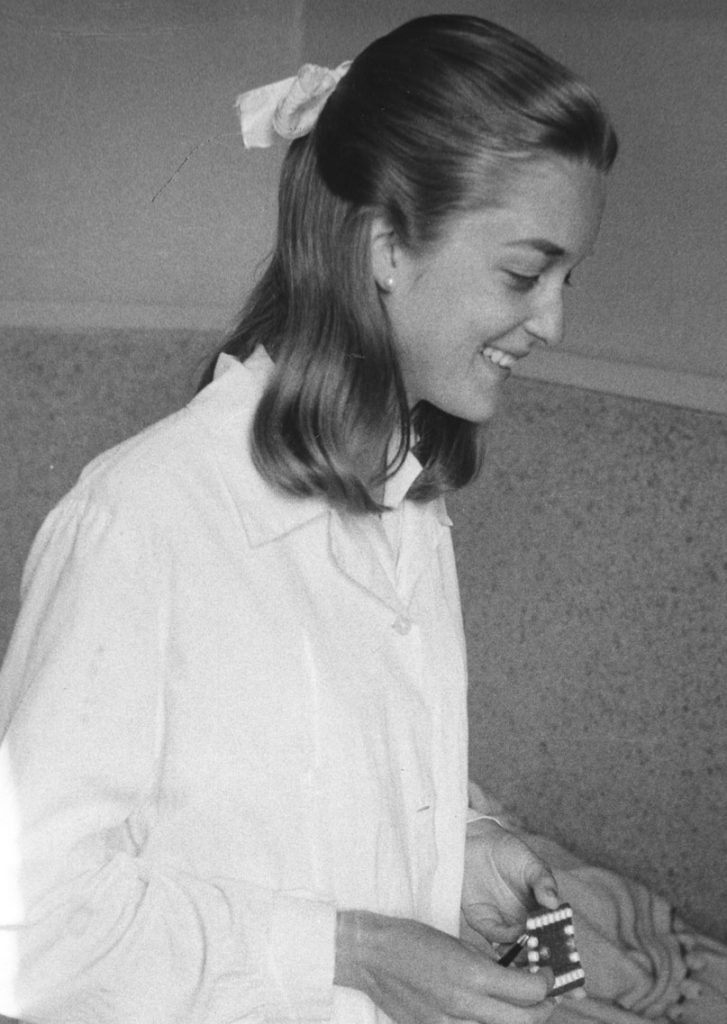Fulbright Chronicles, Volume 1, Number 4 (2023)
Author
Jody K. Olsen
Abstract

Trust is core to both the Fulbright and US Peace Corps programs, built through participant promises, commitments, mutual reciprocal relationships, and integrity. Decades of experiences have reinforced the value of these programs to participants and others in often vulnerable places of service. This trust is significant in situations of high risk, as seen when seven thousand US Peace Corps Volunteers were evacuated in March 2020 because of Covid-19. The trust built through Fulbright and Peace Corps ensures these programs’ continued success.
Keywords
Peace Corps • Fulbright • Trust • Exchange • International
Trust is Essential
Trust is core to the value of both the Fulbright and US Peace Corps programs, a theme evident in the origins of both programs. In introducing the legislation in 1946, Senator Fulbright said, “The Fulbright Program’s mission is to bring a little more knowledge, a little more reason, and a little more compassion into world affairs and thereby increase the chance that nations will learn at least to live in peace and friendship.” Further to this, the first Peace Corps legislation of 1961 began with the words, “The purpose of this act is to promote world peace and friendship through a Peace Corps…with men and women…willing to serve…” As Director of both Council of the International Exchange for Scholars (CIES) and the Peace Corps, I have seen a key common theme: making a difference for human betterment and peace through individual trust relationships. It occurs in the particular, the challenging, and the vulnerable places we encounter, one person, one encounter at a time. Making a difference depends on the relationships forged through working closely and collaboratively, creating the trust essential to human development.
Both Fulbright and Peace Corps receive funding from the US Congress, but, importantly, unlike other US Government programs, they are built on the willingness of individuals to trust leaving the comfort of a home environment to approach and engage with strangers over months or years in new languages, traditions, and cultures. Each program has remained true to participants’ willingness to create their experiences within the founders’ visions. Each year, seven to eight thousand participants per program commit to making a difference by volunteering time, expertise, and themselves in over one-hundred forty countries.
As Fulbright scholar Peggy Maisel told me, “If we make a difference in the world, we make it not universally, but in the particular place we find ourselves. We live in the common, the specific, the immediate. We see it and know its reality, wherever we are.” Similarly, a Peace Corps Volunteer said, “As a thank you, the girls gave me a painting of a road leading somewhere with one duck walking down that road. I am the duck. As the duck walks, he leaves footprints, leaving a piece of himself in the lives of those he has touched.” (https://www.peacecorps.gov/stories/a-club-designed-to-give-young-women-girles-the-confidence-abilities-to-pursue-their-dreams/)
How Trust is Built
Both the Peace Corps Volunteer and the Fulbrighter enter new international relationships with the sincerity, authenticity, integrity, and honor that build trust. This vulnerability and risk taking shown in the exchanges encourage a reciprocal response by host academic and community partners. Each gives away part of self and gains new perspectives for long-term engaged partnerships.
As authors Robert C. Solomon and Fernando Flores suggest in Building Trust, “Trusting is an emotional skill, something that we individuals do; it is something we make, we create, we build, we maintain, we sustain with our promises, our commitments, our emotions, and our sense of integrity…The freedom provided by trust is the freedom to approach and engage with strangers and … to think for oneself and speak up with one’s ideas.”
Both programs offer participants life-changing perspectives and caring partnerships drawn from these interactions. Our counterparts take similar risks in understanding us, the beginning steps toward broader peace.
How Trust Underpins Fulbright and Peace Corps Experiences
As a Peace Corps Volunteer in Tunisia, I ate my daily noon meal with my Arab language teaching colleague’s extended family while we sorted out daily events, family schedules, and food preferences in three languages and two religions. When Suad placed a half a cow’s head on my plate for a special Friday meal, I struggled in halting Arabic to decline the offer. My brain couldn’t bring my stomach to engage. That moment tested friendship, trust, honesty, and my meager communication skills. Midway through my stumbling Arabic, the others around the table looked at my feeble gestures and laughed. Suad, with her wide grin, took me into the kitchen and handed me ingredients to make myself couscous. That moment deepened our friendship for years as I stripped myself of who I thought I should be and started over.
Similarly, Fulbrighters have to be vulnerable and open to new experiences. A Fulbright scholar to Kenya, Paul Basler, organized a small Kenyan band to play music inspired by Kenyan and American folk tunes. At one session, the Kenyatta University president listened, and, without realizing his own actions, began imitating the rhythm of the jam session. He sheepishly asked if he could bring his old horn and join the group. Dr. Basler and the president continued playing, composing music, and giving concerts together throughout the year. Dr. Basler told me later, “I learned we are not as important as we think we are.” A year later, he was voted teacher of the year at his university. “I try to speak to the humanity and spirit of the person. One person’s efforts do make a difference. It doesn’t matter whether or not they understand what that difference will be when the odyssey begins.”
When we commit to working with our Fulbright and Peace Corps partners, we have the potential to create deep, enduring relationships, which can touch national leaders. The president of Rwanda, Paul Kagame, captured this level of trust when he spoke to new Peace Corps Volunteers returning back to Rwanda in 2009, after the genocide there. “While some consider development mostly in terms of infusion of capital, budgets and head counts, we in Rwanda place equal importance to relationships between peoples who have a passion to learn from one another, preparing the next generation of teachers, administrators, and CEOs to see the exchange of values and ideas as the way to build the competencies of our people, and to create a prosperous nation.” Those words still resonate to individual Fulbrighters and Volunteers committing to relationships that build competencies necessary to build a stronger nation.
Trust Sustained Over Time
Odysseys by individual Peace Corps Volunteers forged over six decades made the total evacuation of seven thousand Volunteers due of Covid-19 in 2020 possible. As I sent out the immediate evacuation order on March 15, I trusted that in sixty-one countries, the thousands of host country families, teachers, clinic directors, local taxi drivers, community security officers, airlines, and medical officials that support Volunteers would selflessly offer their help. These thousands shared painful good-byes and supported the safe movement of all of the volunteers to capital cities, international airports, charter flights to the US over the course of nine days without illness or accident. The decades of Volunteers speaking local languages, living with host families, working side-by side their counter-parts laid the groundwork for this unprecedented and remarkably smooth evacuation, unmatched by any other global organization. And trust built over decades assured communities and national governments that the evacuation was due to the global health threat, and that the partnership would continue, Volunteers would return. Trust acts as a governing mechanism in situations of high risk. Volunteers are now being welcomed back.
Conclusion
Fulbright and Peace Corps . . . are based on our shared humanity, approaching each other with humility, and acting with respect for and trust in each other.
I have been shaped by my Peace Corps experience. I listen to understand other perspectives and fold them into evolving actions and decisions. I become different with each situation, each listening moment, each exchange. These experiences, like mine, have been replicated thousands of times over the years by Peace Corps, Fulbright, and other international exchange programs. Fundamentally, they are based on our shared humanity, approaching each other with humility, and acting with respect for and trust in each other. We share the stories of our humanness in these exchanges. We learn to set aside our differences to “Improve the quality of life for people everywhere.” The continued individual reciprocal partnerships of program participants across the cultures and countries help counter mis-information and fear that breed hostility and denegregate human conditions. The “peace” referred to in the original references is built on the thousands of slowly built trusting partnerships and can continue to do so for decades to come.
Notes
- For more information on the Fulbright Program and the individual who inspired it, please go to: Fulbright, J. William, retrieved from: https://web.archive.org/web/20180612142716/https://eca.state.gov/fulbright/about-fulbright/history/j-william-fulbright/j-william-fulbright-quotes
- More information about the Peace Corps evacuation can be found at: Olsen, Jody. Effective Cross-National Respectful Partnerships: A Case Study of Peace Corps’ Volunteer Covid-19 Volunteer Evacuation, Annals of Global Health. 2022. DOI: https://doi.org/10.5334/aogh.3696

Biography
Josephine (Jody) Olsen, PhD, served as the 20th Director of the Peace Corps between March, 2018–January, 2021 including evacuating all 7,000 Peace Corps Volunteers from 61 countries in March 2020. Dr. Olsen also served as a Peace Corps Volunteer in Tunisia and in five senior level positions with the agency, including Deputy Director. In the 90s, she was Director of the Council for the International Exchange of Scholars, the organization that leads the Fulbright Senior Scholar Program. Dr. Olsen received a BS from the University of Utah, a Master’s in Social Work from the University of Maryland, Baltimore, and a PhD from the University of Maryland, College Park. Among her many awards, she has received the University of Maryland President’s Award, the University of Utah’s alumni of the year award, and two honorary doctorates. Jody can be reached at jodyolsen@gmail.com
